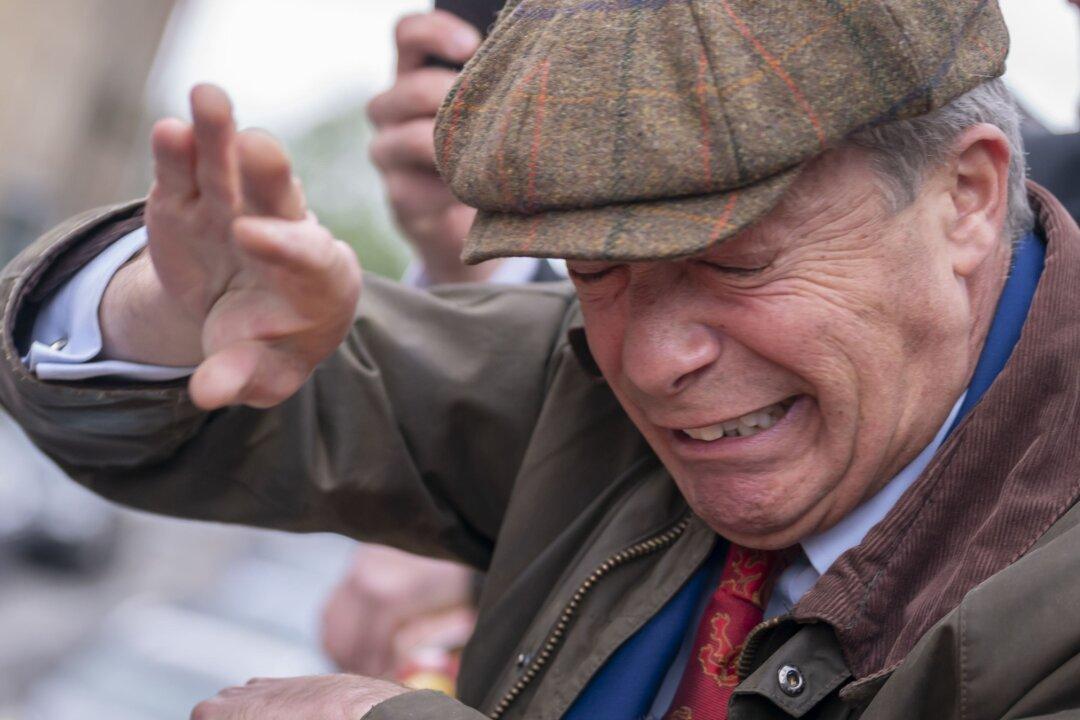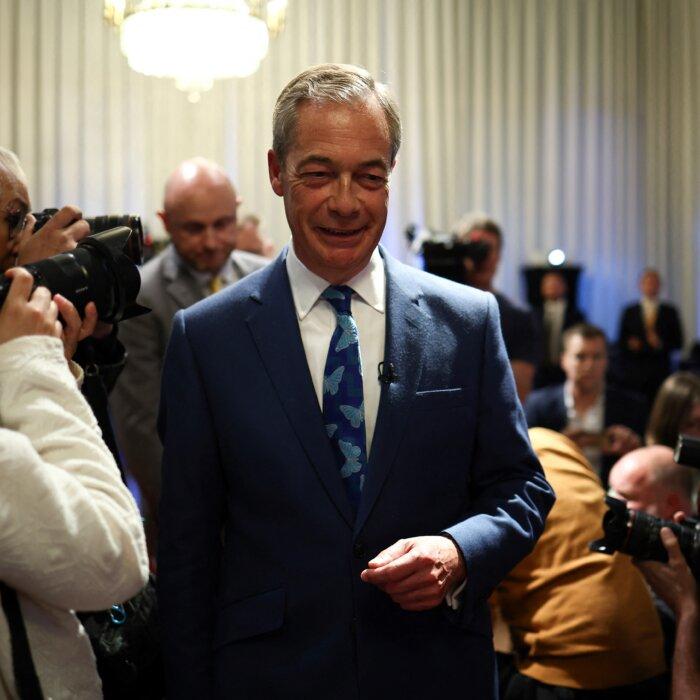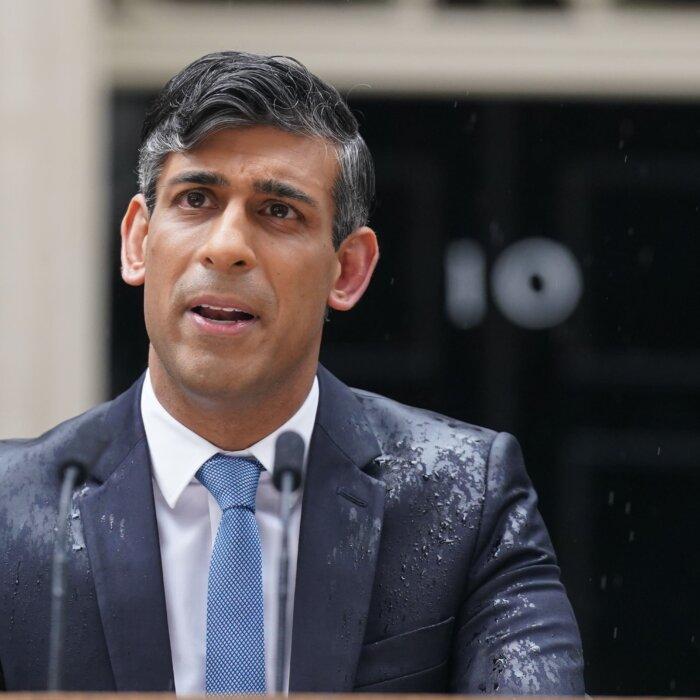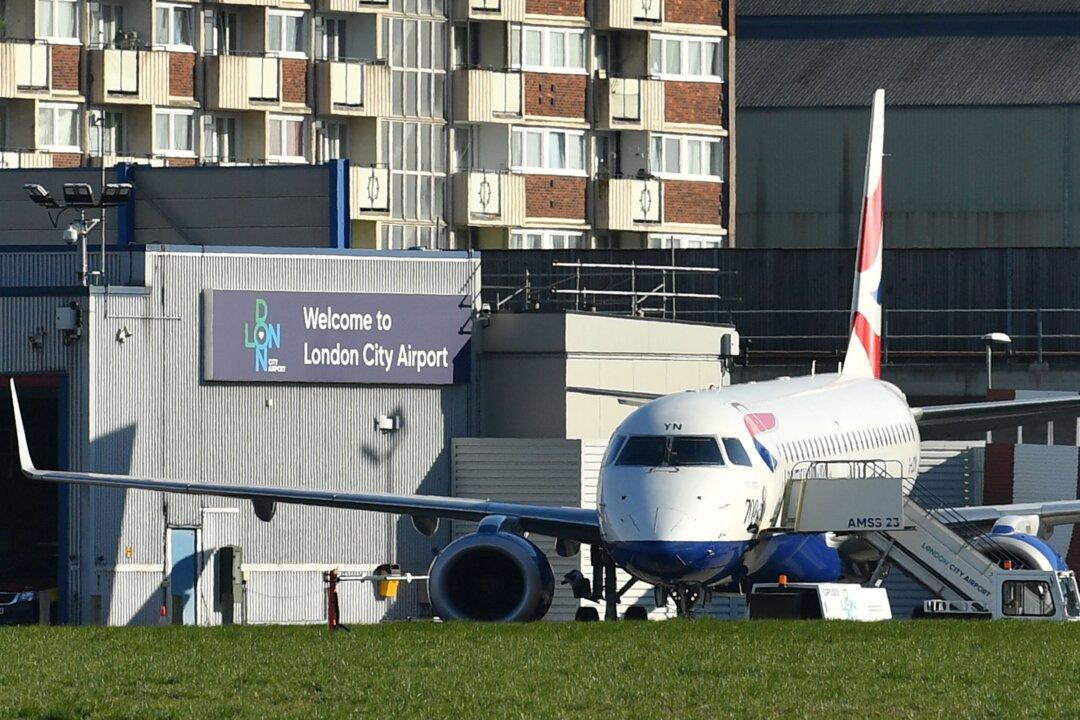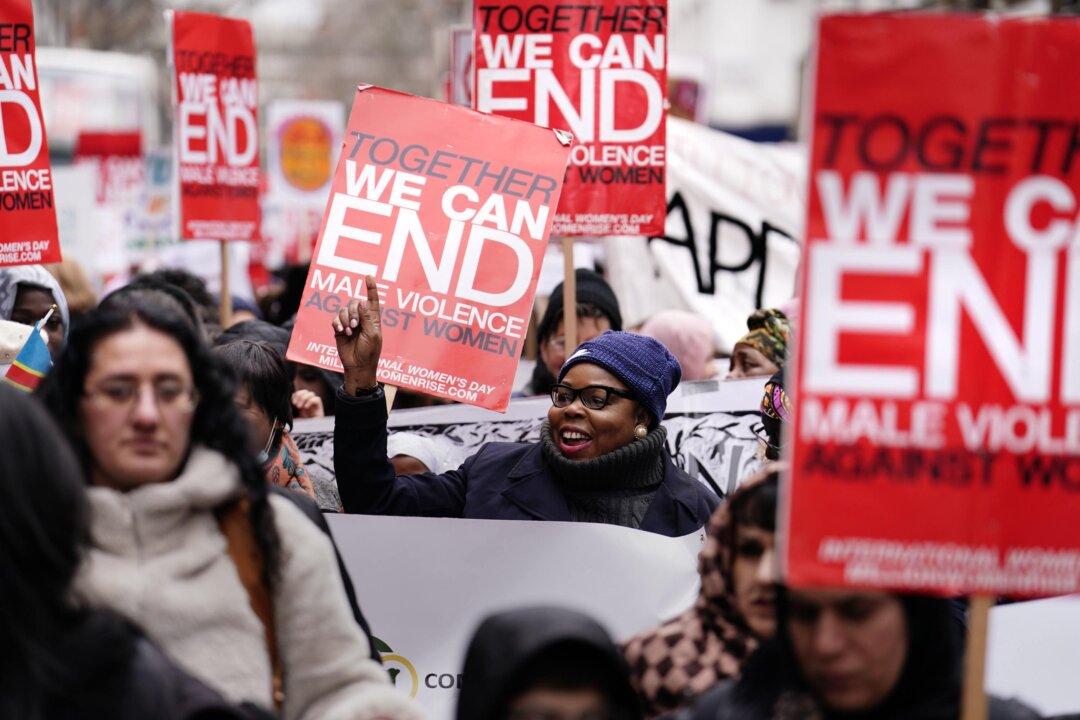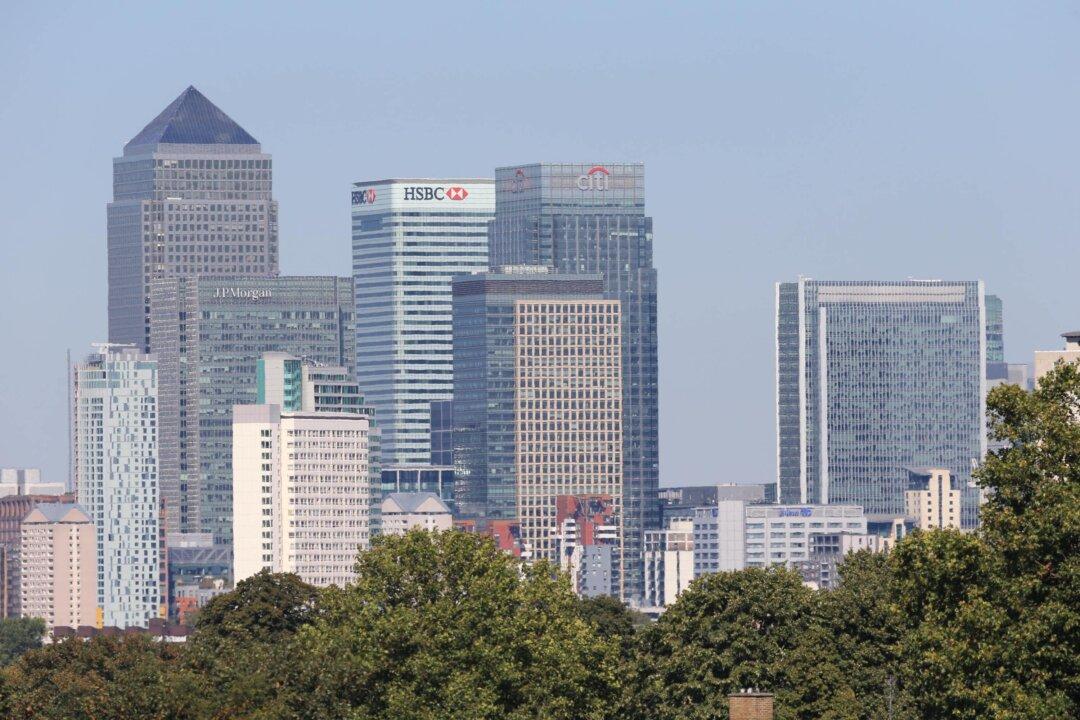A 28-year-old man has been charged by police after throwing several articles towards Nigel Farage in Barnsley, South Yorkshire, on Tuesday.
The Reform UK leader was waving to supporters from the top of a double-decker bus in the town centre when the items were thrown in the politician’s direction.
In a video of the incident, a man in a red jumper can be seen shouting from a cordoned off work site on the side of the road.
He then tosses what appears to be cup, before turning around and grabbing another item, which he again hurls towards the bus containing the Reform UK leader.
Mr. Farage was seen ducking and shielding his face during the tirade.
Both items missed the Reform leader, but struck the bus.
The man is then seeing running down the street before being apprehended by on-duty police officer at the election campaign event.
A spokesperson from South Yorkshire Police told The Epoch Times in an emailed statement that Josh Greally, 28, was charged with using threatening, abusive, insulting words and behaviour with intent to cause fear or provoke unlawful violence following an incident in Barnsley town centre on June 11.
“Mr. Greally has been released on bail and will appear before Barnsley Magistrates’ Court on 26 June 2024,” the spokesperson said.
Mr. Farage called the incident “pretty nasty” while speaking at Ashfield during further campaigning later on Tuesday.
“I’m having to think twice about what I do,” said the Reform leader.
“I’ve been doing this forever and there have been incidents over the years that have happened.
“If I give in to these people, who else is going to stand up? You know, I’m sometimes brave to the point of total stupidity.
“I’m not going to stop, but my modus operandi may have to change,” he said.
Politicians from other parities joined Mr. Farage in condemning “violence” towards political candidates.
“I condemn the violence we saw in Barnsley town centre today,” said Ms. Peacock.
Last week, Victoria Thomas Bowen, 25, was charged with assault and criminal damage after throwing a milkshake over the Reform leader after he left a Weatherspoon pub in his home constituency of Clacton-on-Sea, Essex, on June 4.
Mr. Farage was splashed with liquid from a McDonald’s cup as he approached his campaign bus.
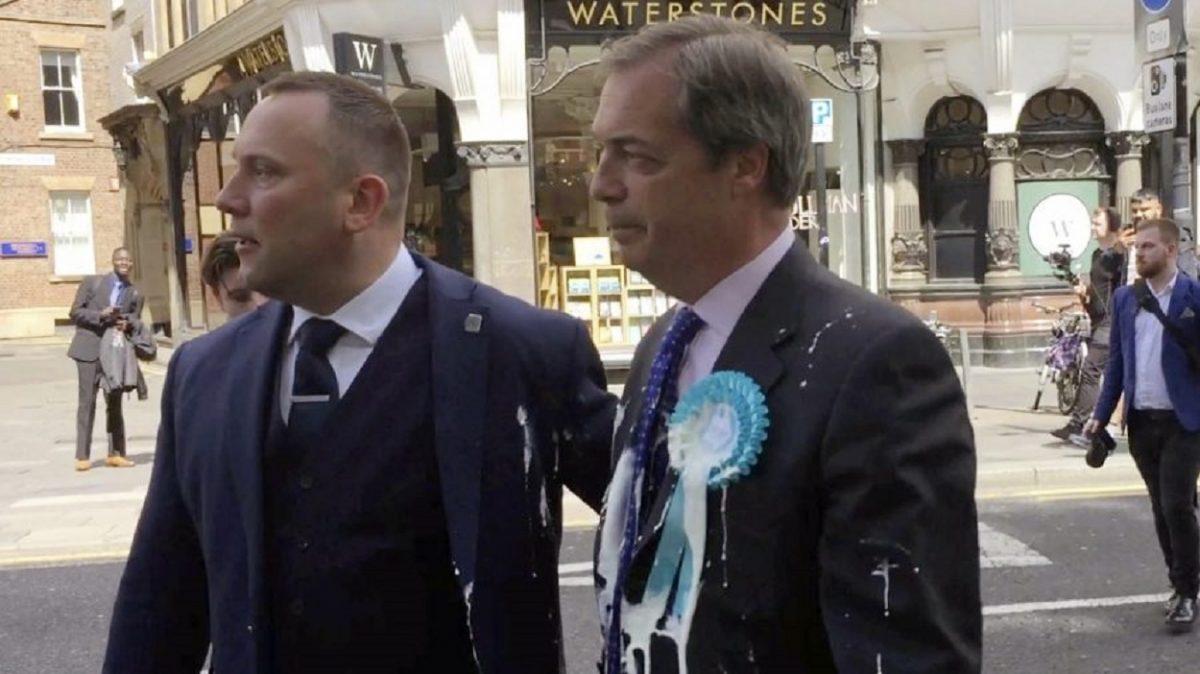
In 2019, the former UKIP leader and MEP was the victim of another public “milkshaking” incident while campaigning in Newcastle.
Recent analysis released on June 4 by the Electoral Commission uncovered “significant levels” of abuse faced by candidates in the May 2024 elections.
According to the survey, 43 percent of the candidates reported experiencing “some kind of abuse or intimidation,” with about 10 percent of respondents labelling it a “serious problem.”
The study found that abuse was a real concern among female candidates, with over 50 percent of women saying they now avoid campaigning on their own, compared to about 20 percent of men.
Nearly half the women surveyed said they avoided discussing controversial topics in fear of their safety.
In a press release, chief executive of the Electoral Commission, Vijay Rangarajan, urged people to avoid abusive behaviour towards candidates ahead of the general election on July 4.
“Campaigning is vital to our democracy and usually carried out respectfully. However, our research shows that far too many candidates are facing harassment and abuse,” said Mr. Rangarajan.
“This can deter candidates from campaigning or standing altogether, significantly impacting voter choice and access to information.
“Threats of violence, unwanted contact, and discriminatory abuse are illegal. With the police we are today publishing safe campaigning guidelines, and we are working together to raise awareness. We urge campaigners to talk to their teams about what they can do,” he said.
Temporary Assistant Commissioner Nik Adams from the City of London Police and the NPCC portfolio lead for elections said in a statement, “Our democracy can be harmed if our elections are undermined, and this can happen in a number of ways.”
“Firstly, during campaigns and the run up to elections; threats, intimation, and hate can undermine people’s willingness to stand, and it can also undermine free speech and free debate.
“Secondly, during elections themselves, coupled with fraud and abuse of the rules, this can undermine a sense of fairness and people’s willingness to vote, and it can change voting behaviours, intentions, and outcomes.
“That’s why it is really important that police forces across the country work together with partners to tackle these issues,” Mr. Adams said.
